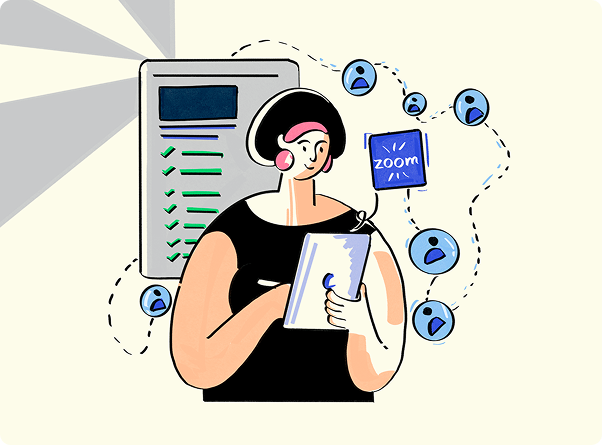


Key Takeaways
Most of the edtech startups are currently grappling with massive losses and are burning cash at a fast pace. Scaling first or monetisation first is still a debatable subject for this domain. If you are an edtech startup or planning to launch one, your revenue model will play a crucial role in your burn rate. I have summarized the SIX common revenue models prevalent in the market with their pros and cons and in the later part I have shared an Case Study of one of the most innovative business models in the EdTech Market.
1. Freemium
Preferred Segments: Test Preparation and Professional Skill Development
Pros: Quick User Acquisition, Wider Engagement, Increased Popularity
Cons: A large number of Non-Paying Customer base will never convert and can even burn your opex
2. Pay As You Go
Preferred Segments: Online Certification and Test Prep
Pros: High Traction, Wider Engagement, Increased Popularity
Cons: Building Traction is quite challenging as no free or trial courses are offered.
3. Subscription
Preferred Segments: Online Certification and Skill Development
Pros: Recurring Revenues, Engaged Customers, Loyal Userbase, FREE Trials can be beneficial unlike FREE in Pay As You Go
Cons: Constant Value Creation and Robust Customer Servicing is going to be difficult in the long run, Make Customer realzie the quick value within Trial Period is challenging.
4. Enterprise Sales
Preferred Segments: Learning Kits, Assessment Providers and Corporate Training
Pros: Higher Volume, Decent Ticket Size, More UpSelling Opportunities
Cons: Long Sales Cycle, Top-Down Adoption might create a less engaging learner base, and Network Driven Sales might not work for everyone.
5. Ad-Based Revenues
Preferred Segments: Language Leaning, Mobile based Learning Apps
Pros: Quick and easy to Go-to-Market, Can Start without any significant investments, Ad-Tech market is matured and easy to integrate.
Cons: Leads to Poor User Experience if not Properly Implemented, Increase in the adoption of Ad-blockers.
6. Online Marketplaces
Preferred Segments: Online Certification and Skill Development
Pros: No Costs associated with Content Creation and Talent Acquisition
Cons: Inconsistent Quality and Winning Users Trust to Pay for Creator’s content is challenging.
Duolingo’s Business Model
If you’re in the business of learning, Duolingo is an excellent example of a company that has taken advantage of emerging opportunities. The free-to-use app has grown into a massive learning platform. It has focused on its core value by tweaking and pivoting to keep up with new demands.
Founders Luis von Ahn and Severin Hacker hit on an early business model based around crowdsourcing language translation. The need for translation services at that time was clear, and people were willing to contribute their time to help out. That translated into use for Duolingo’s translation services, which allowed them to focus on building out their product, initially for free. When Duolingo launched in 2011, it was a crowdsourced translation platform for the crowdsourcing era. It first garnered attention as a gamified tool for translating Wikipedia pages. But back then, there were no ads on the site, and the company was not yet making money.
Today, Duolingo is still free to use and offers a variety of content: it now teaches languages (French, Spanish, Portuguese, German and Italian), has a partnership with CNN and has developed a new app called Conversation Coach.
As the product expanded beyond translation, the company focused more on education—and new monetisation models followed. Von Ahn told Forbes in 2016, he believes three billion people will be using Duolingo by 2023; these individuals will be able to use the app for free but will pay for certification or special features. That’s not to say that Duolingo is not still trying to make money; its recent focus on making education more accessible to people worldwide has led it to explore new business models.
Today’s Scenario:
Duolingo recently started selling “in-app purchases” for $4.99 per month, which includes 1-on-1 tutoring sessions with a certified teacher, as well as access to pre-made educational materials like videos and lesson plans.
They offer language certification tests for $29 each—a more serious version of its “skill tree” tests.
With its latest update, Conversation Coach will now be available as a standalone app outside of the main app—allowing users to practice their conversation skills. “We believe true equality is when spending more can’t buy you a better education.” – Duolingo founders.
EdTech is primarily different from other markets because the consumer is willing to pay more for the right kind of value as its regarded as an investment. Yet, to thrive in this niche, you should aim to build a sustainable business model backed by a strong pedagogy or else you will end up creating dead-end apps. I would love to hear your thoughts as well. Feel free to drop a mail to deepak@teachedison.com

Tutors Edge by EdisonOS
in our newsletter, curated to help tutors stay ahead!
Tutors Edge by EdisonOS
Get Exclusive test insights and updates in our newsletter, curated to help tutors stay ahead!










.png)
.webp)
